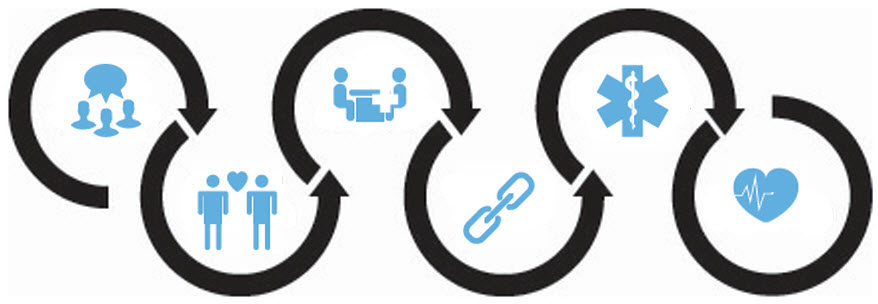- About the DSHS HIV/STD Program
- Contact Us
-
- THMP – Contact Us
- THMP – Frequently Asked Questions
- THMP – HIV Medication Advisory Committee
- THMP – Medicare Part D (Medicare RX) Information
- THMP – Texas THMP State Pharmacy Assistance Program (SPAP)
- THMP – Texas Insurance Assistance Program-PLUS (TIAP-PLUS)
- THMP – Disaster Preparedness for THMP Clients
-
- HIV Administrative Agencies
- HIV/STD Service Providers – Abilene – Amarillo – Arlington – Austin
- HIV/STD Service Providers – Beaumont – Belton – Bryan
- HIV/STD Service Providers – Cameron – Cleveland – Corpus Christi – Cotulla
- HIV/STD Service Providers – Dallas – Denton
- HIV/STD Service Providers – Eagle Pass – El Paso
- HIV/STD Service Providers – Farmers Branch – Fort Worth
- HIV/STD Service Providers – Galveston
- HIV/STD Service Providers – Hallettsville – Harlingen – Hillsboro – Houston
- HIV/STD Service Providers – Killeen – Kingsville
- HIV/STD Service Providers – Laredo – Longview – Lubbock – Lufkin
- HIV/STD Service Providers – McAllen – McKinney – Midland
- HIV/STD Service Providers – Nacogdoches – Odessa
- HIV/STD Service Providers – Palestine – Plano – Richmond – Robstown
- HIV/STD Service Providers – San Angelo – San Antonio – San Marcos – Sherman
- HIV/STD Service Providers – Temple – Texarkana – Texas City – Tyler
- HIV/STD Service Providers – Uvalde – Victoria – Waco – Wichita Falls
- HIV and STD Testing in Texas
-
-
- Border Report Section 1 – Executive Summary
- Border Report Section 2 – HIV, STDs, and TB in the Texas-Mexico Border Region
- Border Report Section 3 – Population and Demographics of the Texas-Mexico Border Region
- Border Report Section 4 – HIV Diagnoses and People Living with HIV
- Border Report Section 5 – Sexually Transmitted Diseases
- Border Report Section 6 – Tuberculosis
- Border Report – Table Appendix
- HIV and Viral Hepatitis Prevention and Treatment Resources in Texas
-
-
Contractor Resources – HIV Medical and Psychosocial Support Services Open submenu links Close submenu links
-
- Outpatient/Ambulatory Health Services
- Home and Community-Based Health Services
- Referral for Health Care and Support Services
- Non-Medical Case Management
- Home Health Care
- Rehabilitation Services
- Early Intervention Services
- Oral Health Services
- Hospice Services
- Respite Care
- Food Bank – Home Delivered Meals
- Other Professional Services
- Housing Services
- Health Education/Risk Reduction
- Outreach Services
- Linguistic Services
- Health Education-Risk Reduction – Minority AIDS Initiative
- Outreach Services – Minority AIDS Initiative
- Medical Nutrition Therapy
- Health Insurance Premium and Cost Sharing Assistance
- Psychosocial Support Services
- Medical Transportation Services
- Emergency Financial Assistance
- Child Care
- Medical Case Management (including Treatment Adherence Services)
- Mental Health Services
- Substance Abuse Outpatient Care
- Substance Abuse Services (Residential)
- Universal Standards
- Telemedicine Guide Resources
- Telemedicine, Teledentistry, and Telehealth for HIV Core and Support Services
- Primary and Secondary Service Categories
- Public Comment on the Updated HIV Standards of Care
- Housing Opportunities for Persons With AIDS
- HIV Services Program Reports
- Technical Assistance
-
-
-
- THISIS Help Desk
- THISIS Training Manuals
- THISIS Resources and Forms
- THISIS Training Videos
- THISIS Tip Sheets
- THISIS Workflows
-
- THISIS FAQ – Labs
- THISIS FAQ – System Access
- THISIS FAQ – Clinical
- THISIS FAQ – Event
- THISIS FAQ – Follow-Up
- THISIS FAQ – Workflows
- THISIS FAQ – HIV Surveillance
- THISIS FAQ – Notes
- THISIS FAQ – Partner-Clusters
- THISIS FAQ – Public Health Follow-Up
- THISIS FAQ – Reporting-Morbidity
- THISIS FAQ – Reports
- THISIS FAQ – Risk Factors
- THISIS FAQ – Syphilis
- THISIS FAQ – Case Assignment Field Record
- THISIS FAQ – Co-Infection Management
- THISIS FAQ – Congenital Syphilis
- THISIS FAQ – Facilities
- THISIS FAQ - General
- THISIS FAQ – Assigning and Tracking Cases-Field Records
- THISIS FAQ – Helpful Tips
- THISIS Glossary
- DSHS TB/HIV/STD Security and Database Account Management
- Medical Monitoring Project (MMP)
- Texas HIV Surveillance Procedure Manual
- HIV/AIDS Data Changes 2010
-
- Contractor Resources – Routine HIV Testing
-
- HIV/STD Planning
-
-
- Records Retention
- HIV/STD Security Procedures
- Laws, Rules, and Authorization
- Model Workplace Guidelines
DSHS HIV/STD Program
DSHS HIV/STD Program
HIV/STD Program Improvement Resources
The Texas HIV Syndicate built this toolkit to help regional stakeholders improve HIV/STD programs. The toolkit includes ways to address the various needs of our communities living with or without HIV:
-
Public Awareness – Learn about social determinants of health and how to use social media to promote awareness.
-
Focused Prevention – Learn how environmental and systemic issues can intensify HIV in vulnerable populations.
-
Full Diagnosis – Learn about routine HIV screening and why it's important for medical care. Understand common client barriers and how to address them.
-
Successful Linkage – Get tips for supporting linkage systems to fit the unique needs of clients.
-
Continuous Participation in Care – Learn how to create systems to identify and respond to individuals at risk of dropping out of care.
-
Viral Suppression – Learn about viral suppression and the tools available to help maintain medical adherence.

About the Texas HIV Syndicate
The Texas HIV Syndicate serves as the statewide HIV/STD community planning group for Texas.
Syndicate members make policy, system, and practice recommendations from broad recommendations in the Texas HIV Plan and related planning documents. They also create tools to help regional stakeholders address HIV and other STDs with evidence-based strategies tailored to meet regional needs.
The Syndicate advises DSHS staff and helps Texas maintain an inclusive and participatory planning process for the delivery of prevention and care services.